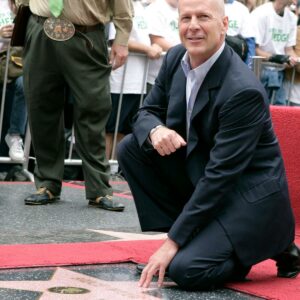When the name Michael Jackson is mentioned, it instantly conjures images of electrifying dance moves, unforgettable melodies, and some of the most iconic performances in music history. But behind the King of Pop’s glittering facade lay a profound commitment to the relationships he cultivated throughout the entertainment industry. Michael Jackson’s influence stretched far beyond the stage—his collaborations, mentorships, and advocacy efforts helped shape the community he cherished, fostering bonds that transcended music and left an indelible mark on the industry.
1. Mentorship and Collaboration
From his early years as a child prodigy in The Jackson 5 to his record-breaking solo career, Michael Jackson understood the power of collaboration. For Jackson, making music was never a solitary act. He surrounded himself with some of the greatest minds in the business, from the legendary Quincy Jones to songwriting powerhouses like Rod Temperton and Lionel Richie. Together, they created sounds that pushed the boundaries of pop, R&B, and rock, crafting timeless records that would define an era.
Yet Jackson wasn’t just a collaborator—he was a mentor. He saw potential in those around him and sought to nurture it. Quincy Jones often credited Jackson with encouraging experimentation in their projects, creating an environment where innovation flourished. Their collaborations produced monumental works like Off the Wall, Thriller, and Bad, albums that changed the landscape of pop music. But Jackson’s mentorship extended beyond the studio. He supported emerging talent, often offering guidance and opportunities to those just starting out.
Artists like Beyoncé, Usher, and Justin Timberlake have often spoken about Jackson’s influence on their careers. Timberlake, in particular, has shared stories of how Jackson inspired him to pursue a solo career after his time with *NSYNC. In his tribute to Jackson, Timberlake described their relationship as one built on admiration and gratitude, echoing the sentiments of countless artists who benefitted from Jackson’s wisdom.
2. Supporting Emerging Talent
Jackson’s ability to spot talent and nurture it was almost as legendary as his music. He had an eye for rising stars and took great pride in watching others succeed. One notable example is Usher, who credited Jackson as his biggest inspiration. During his early career, Usher’s stage presence and musical style were heavily influenced by Jackson’s iconic performances. The two shared a mentor-student relationship, with Jackson offering advice and encouragement throughout Usher’s journey to superstardom.
Similarly, Beyoncé has spoken about how Jackson’s work ethic and artistry shaped her career. In interviews, she often referred to him as the blueprint for what it meant to be a true entertainer. Beyoncé’s own career trajectory mirrors Jackson’s in many ways, from her genre-blending music to her commanding stage presence.
This spirit of mentorship extended to younger generations as well. Jackson was known for inviting young artists to his shows, giving them backstage access and the chance to observe his process. For these emerging talents, the experience of witnessing Jackson’s artistry up close was a lesson in dedication, creativity, and the pursuit of excellence. Jackson understood the importance of passing down knowledge and ensuring that the next generation of artists could continue to push the industry forward.
3. Philanthropy and Advocacy
Beyond his contributions to music, Jackson’s philanthropic efforts showcased his commitment to making the world a better place. He used his platform not only to entertain but also to advocate for social change. His involvement in the creation of We Are the World alongside Lionel Richie and Quincy Jones is perhaps one of the most famous examples of Jackson’s ability to unite the entertainment community for a common cause.
We Are the World was more than just a charity single—it was a movement. The project brought together dozens of the biggest names in music, from Bruce Springsteen to Tina Turner, all united under one goal: raising money and awareness for famine relief in Africa. Jackson’s role in the project was central, not only as a co-writer of the song but also as a driving force behind its message of global solidarity. The song’s success was unprecedented, raising millions of dollars for humanitarian aid and leaving a lasting impact on the way the entertainment industry approached philanthropy.
But Jackson’s philanthropy wasn’t limited to high-profile projects. Throughout his life, he quietly supported numerous causes, donating millions to children’s hospitals, educational programs, and disaster relief efforts. His Heal the World Foundation, established in 1992, focused on helping children in need, addressing issues like poverty, hunger, and abuse. Jackson believed that artists had a responsibility to use their influence for good, and he led by example, consistently giving back to the communities that supported him.
4. Breaking Barriers and Building Bridges
Michael Jackson wasn’t just a cultural icon—he was a trailblazer. Throughout his career, he broke down barriers that had long existed in the entertainment industry, opening doors for artists of color and challenging the status quo. In 1983, Jackson made history when Billie Jean became one of the first music videos by a Black artist to receive heavy rotation on MTV. This achievement marked a turning point not only for Jackson but for the industry as a whole, proving that talent knew no racial boundaries.
Jackson’s success on MTV helped pave the way for other Black artists to gain visibility in an industry that had historically marginalized them. His music videos, often described as short films, set new standards for storytelling and visual artistry. The groundbreaking Thriller video, with its cinematic scope and innovative choreography, remains a touchstone in music video history, inspiring generations of artists to follow.
Beyond his work in the U.S., Jackson’s influence was truly global. He worked with artists from around the world, incorporating diverse musical styles into his work and reaching audiences across cultures. His ability to connect with people from different backgrounds was a testament to his universal appeal. Jackson’s music transcended borders, uniting fans from all walks of life in their admiration for his artistry.
5. Creating a Lasting Legacy
Michael Jackson’s impact on the entertainment industry is immeasurable. Even after his passing, his legacy continues to shape the way artists approach their craft. For many, Jackson represents the pinnacle of what it means to be an entertainer—someone who not only excels in their field but also uplifts those around them.
Jackson’s influence can be seen in the work of countless artists today, from the way they approach live performances to the way they navigate their careers. Artists like Bruno Mars and The Weeknd have openly cited Jackson as a major influence, drawing inspiration from his music, style, and showmanship.
But perhaps Jackson’s most enduring legacy is the sense of community he fostered within the entertainment industry. He understood that success was not just about individual achievement but about lifting others up and creating an environment where creativity could thrive. In interviews, artists who worked with Jackson often recall his generosity, his kindness, and his willingness to help others succeed.
This spirit of collaboration and mentorship lives on in the industry today. Jackson’s ability to bring people together, both on and off the stage, has left a lasting impact on the way artists interact with one another. His legacy serves as a reminder that greatness is not just about what you achieve for yourself but about what you give to others.
Conclusion
Michael Jackson was more than a performer—he was a visionary who understood the power of community. Through his mentorship, collaborations, philanthropy, and boundary-breaking work, Jackson left an indelible mark on the entertainment industry. His commitment to fostering relationships and supporting emerging talent has created a ripple effect that continues to inspire artists today.
In an industry often characterized by competition and individualism, Jackson’s approach was one of unity and collaboration. He believed in the importance of giving back, of sharing knowledge, and of building bridges between people and cultures. Jackson’s legacy is not just about his music—it’s about the relationships he nurtured and the sense of community he helped create. Today, as artists continue to look to him for inspiration, it’s clear that Michael Jackson’s impact on the entertainment community will be felt for generations to come.





